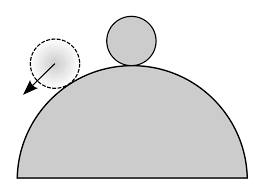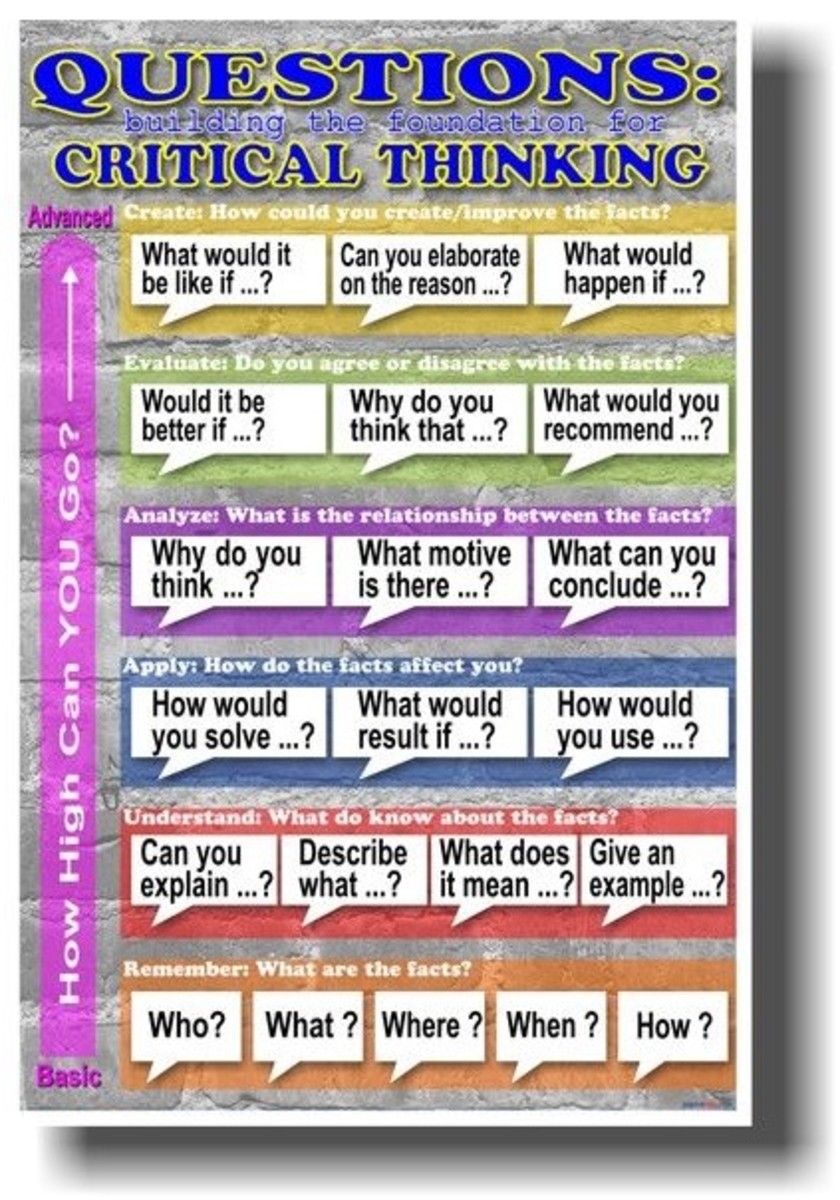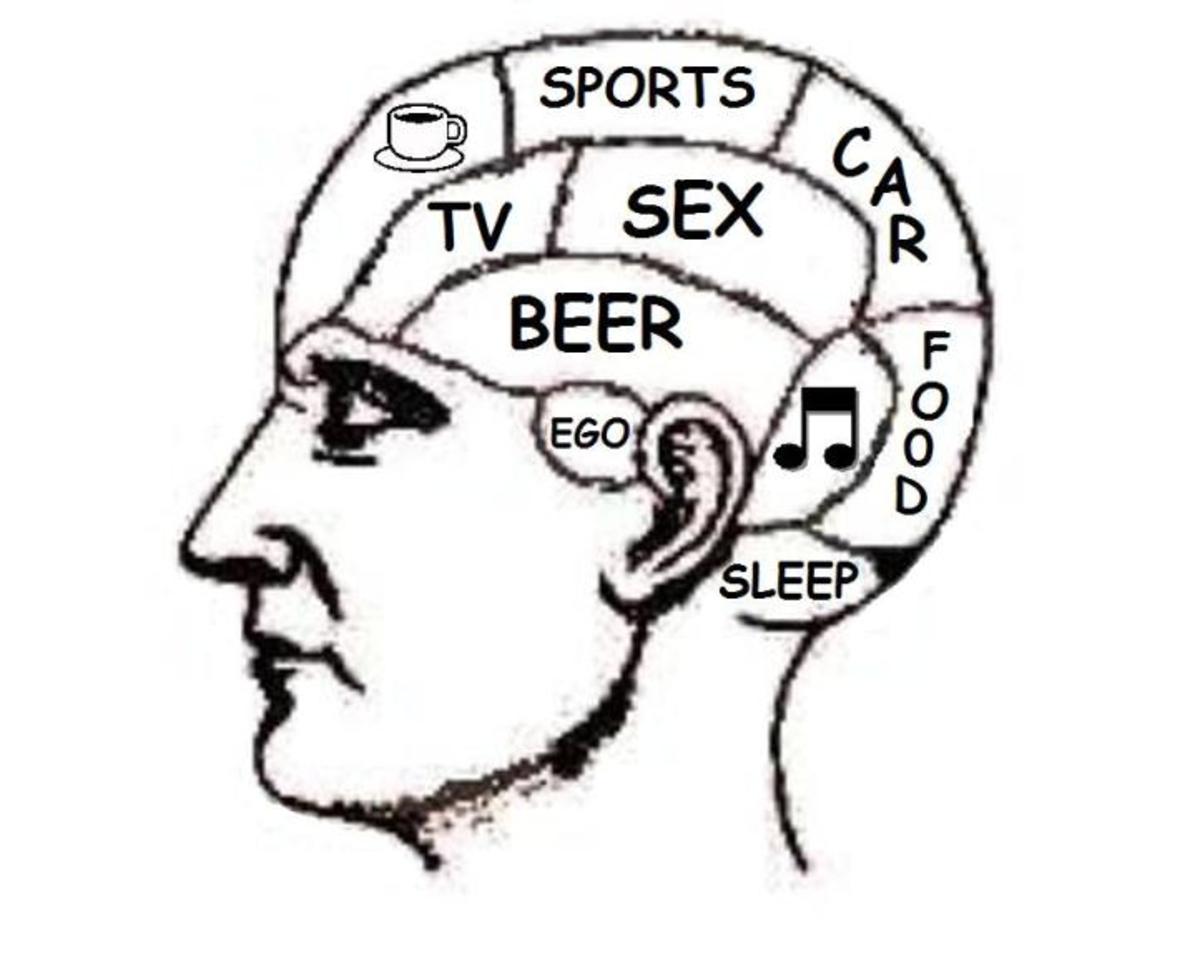The Real and The Abstract: Where is the difference?
Begin with a normal day
Every day we learn new things. Much of it, in fact, ends up disproving some of our earlier notions. We have come to accept this as a normal thing and a definite sign that we, the human race, is moving forward. Whatever we face that can't be explained away in a manner amicable to us (read male!), we just accept as basic tenets of our race.

Are there, Differences?
But what surprises me is the vehemence with which we object to anyone casting doubts, on what we call as our basic tenets. The more reasonable we are in accommodating changes in any of the ‘worldly areas’, like scientific development or economic change, the more unreasonable we seem to be, in opposing any deviations in our abstract world, like virtue or honor.
Just as we see worldly changes, like inventions, discoveries, improved living conditions or new systems of governance, as a harbinger of better things to come, we renounce any deviations to the abstract values, like our ideas regarding a righteous life, as a sure sign of the imminent end of our race.
Why is it so?
When we observe any changes in the appearance, behavior, or constitution of living or nonliving objects around us, we generally react in an appropriate way. The aim always will be to find the exact cause, study, reflect and take appropriate action. Sometimes we go wrong, but on all such occasions, people are there to point out our shortcomings or omissions. We also acknowledge, at least partially, the fact that our forefathers would have made quite a few errors in their appreciation of material objects or phenomena around them, and the above approach results in getting such mistakes corrected. Thus, whether we are careful, vigorous, and persistent about it or not, all things go towards the better, ensuring a happy life.
Whereas when we observe any changes in the appearance, behavior or constitution of our abstract tenets, ceremonies or other conceptual entities, we react in an unthinking and uncaring manner, the aim always being to hide, discredit or kill the cause. We also acknowledge with great vehemence, the infallibility of our forefathers and the need to correct whatever deviations that might have happened to our tenets. If a deviation actually happen, the strongest push is always reserved for correcting or nullifying it at the earliest.
Why does it happen that way?


A bit, About those Differences
Why do we behave with such a telling difference, when confronting the real world and when facing the abstract? Just to illustrate this difference, take the way we carry out repairs to our material things, as well as how we protect our 'beliefs'.
Take, for example, our approach to safety. It is an established practice to supervise, crosscheck, test, and subject whatever work we do to an independent examination by someone not at all involved with it, for ensuring that whatever is being done is done well. In addition, if a defect, malfunction, or failure is noticed in a component or system that cannot be explained convincingly, specific recommendations or instructions are issued to all units or agencies that put such component or system to use. Such that one can locate failures before it actually happens.
Not only that we do not attempt any such examination of our abstract notions and spiritual theories either before adopting it, or while it is in use, but also we vehemently object to anyone making even a passing comment, on it or on anything that can be abstracted. For example, had we (re)examined all our ideas or notions regarding the universe, when the long held notion of a geocentric universe collapsed, we would have been in a much better shape (I mean, far ahead of where we are now), as far as the appreciation of universe goes.
In fact, what should be determining the way we are disposed to think is our own perception of the world around us. Our idea of the reality around us would have been teaching us to think in terms of black and white, light and dark, up and down or good and bad. And we have been doing so all these while with our thoughts, real as well as abstract. Now that our ideas of reality are undergoing tremendous changes, mainly owing to results encountered in quantum physics and related research, noticeable changes should have been happening with our abstract notions as well. Like, instead of viewing those things only as black or white, we should be thinking in terms of white, black, and neither white nor black. And our thoughts should have included new vistas of demarcation, like good, bad and neither good nor bad, or up, down and neither up nor down.
But that is not happening. Why?
People are encouraged to approach the material world, more or less, with an open mind. Why is it that when it comes to topics that are beyond this, not only that we do not encourage questions, but also we behave in a rather opinionated manner in confronting them, that too, invariably, with a closed mind?
In the material world, I think we approach an issue with an open mind because that is the best way to solve our problem, that is, of getting an answer. And the answer, which could be a new idea or improvement to an existing one, is to meet some need. The fulfillment of this need would have been making our life more comfortable. Realizing that the potential to further our comfort could be hiding in each and every idea, we are always ready to acquire and assimilate new thought, however outlandish, impractical or laughable.

A bit More, About those Differences
A good example of such a 'split' approach could be the way we look after our health. Whenever something untoward happens with our body, we consider it with an open mind.
We take services of experts to examine the problem carefully and use whatever is available within our reach to remove the body part in full or at least in part, and eliminate the root cause. Whereas, when the same thing happens to our mind, our reaction is not for examining our mind. In cases where the problem experienced by our mind is easily, unmistakably recognizable, we might resort to some medication. But in all other cases, we employ whatever is available within our reach to agitate everything else in our midst in full or at least in part, till the society is completely at home with the resulting disturbance. (Which could be causing many other ‘minds’ fall sick!) Just as we are always longing for a sound body, we are bent upon making our minds unsound.
Or think of our approach to internal or external stimuli. Whenever we are brought to confront something pleasant, the endearing experience alone, is not enough to satisfy us. We will be on a search, making a threadbare analysis to study all facets of such an experience. Those who get a deeper insight into these stands to get honored also more, providing a natural encouragement to such a behavior.
But our approach is not the same, when we experience something unpleasant. Instead of examining unpleasant events in a similar manner, the primary aim becomes one of obliterating the event, by extermination of the event, bypassing the same, or by some other means. This effectively nullify further analysis. Had we behaved rationally, our efforts would have been studying the event in detail, at least to prepare ourselves for future occurrences of the same. A good example of this paradox can be seen in our approach to happiness. We know in detail about happiness and its dependency on certain chemicals, and it is an area of research. But, our information about unhappiness leaves a lot to be desired. As rational beings, unhappiness should have been subjected to a deeper study than happiness, since that would have given us a greater share of joy. (Reduction in unhappiness is, as we can easily gather, less resource intensive than addition of happiness)
Why is it that we are not able to notice this?
I think, in the unworldly (things other than strictly material entities) world, we do not approach a question with an open mind. Not only that, we look at spiritual topics, particularly with a closed mind. For had we been otherwise, the long list of spiritual concepts we entertain, like the necessity of a creator, or a regulator who needs to be kept happy, wouldn’t have survived all these millenniums, with no effective change in its appearance.
If that’s so, what human need is being satisfied by an unworldly idea that it is able to withstand even the most significant changes in our lifestyle? What need does it serve?
I think the eagerness we show in entertaining unworldly ideas clearly shows that these ideas serve an important need. A probable one is the need to hide some worldly want, the fulfillment of which would have been leaving us extremely uncomfortable. And we are wary of any new such ideas as the loss of the old idea will once again unleash the ‘worldly need’, and consequently, the discomfort, the old idea was helping us to hide. In such a case, since in every answer there is a possibility of that discomfort relapsing, we cannot afford to face questions in the spiritual domain with an open mind which could lead to new ideas. And we are wary of any new ideas, as they have the potential to cause fresh discomfort.
That brings me to the most pertinent doubt. How is that we are always waiting for a reason to get upset? If we get an expected response showing a deviation from the norm, or, if we get exposed to an uncomfortable question, we are agitated. That too, good enough to cause permanent harm. What does this indicate?

What Finally, is It?
This, I think indicates lack of stability. To put it more appropriately, the human society is always in a condition of unstable equilibrium. Because of which, a small or insignificant disturbance is enough to set into motion, a chain of reactions, many of those unpleasant, and with long lasting effects.
We know that the specified behavior of any systems, equipments or machines is valid only within certain operating limits, known as the linear range. We also know that every system is prone to wayward behavior, due to thermal effects, humidity, vibration, etc., and suitable precautions are to be taken to account for this. How do we make sure that a system operates in the linear range of interested parameters? By having an array of special devices, called safeties, incorporated into such systems or devices to prevent it from operating beyond the recommended range, for whatever reason.
I think we are can try the same approach as the one we use in ensuring stability to physical systems, in all facets of our life.
Already such an approach is visible in some aspects of our daily life. When confronted with a failure, we are able to allay our sense of loss, or in cases of success, we are able to cap our elation from becoming obtrusive to others, thanks to intervention from the spiritual dimension of our life. That is, such interventions make sure that the material part of our life operates within the linear range of the parameters of interest.
Why doesn’t it happen in our spiritual world? Why is that whenever a disturbance happen to the spiritual fabric, instead of correcting itself, the disorder threatens to blow up the society? Even in cases of tiny pricks, rather than self-correcting, why do all of those add up to produce a huge ripple?
I think the real and abstract works at tandem, making similar contributions in guiding our lives, but in the opposite sense. One augments our good feelings or acts against our sad feelings. The other acts as a guard, against external attacks on our feelings.








